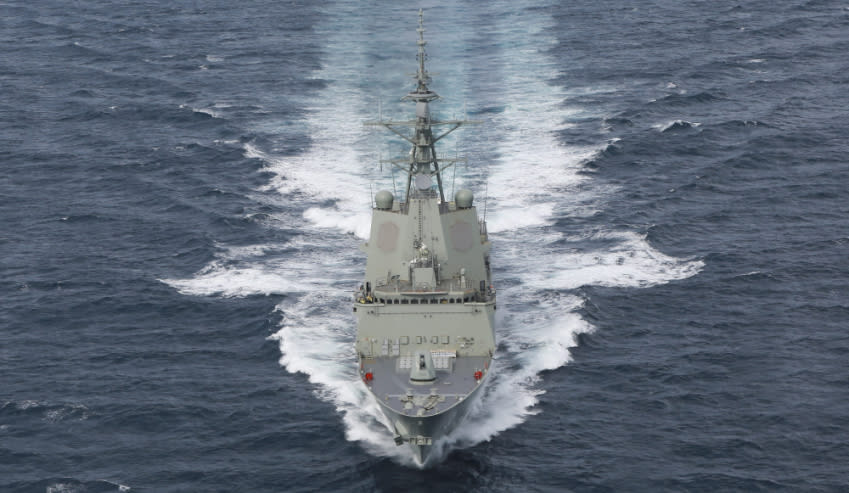Australia’s Hunter-class frigates, Attack-class submarines ‘will be delivered on time’
Australia’s defence spending is set to rise well beyond the benchmark 2 per cent of GDP as the Morrison government declares the rebuilding of the nation’s military capabilities will not fall victim to the coronavirus.
The government has recommitted to promised defence mega-platforms, including the $80bn submarines and $35bn future frigate programs, amid signs the post-coronavirus world will be marked by heightened US-China tensions.
The declaration means defence funding will account for a larger-than-anticipated slice of GDP, as the coming coronavirus recession saps national output.
“The Morrison Government is committed to the delivery, on time and on budget, of nine Hunter-class frigates and 12 Attack-class submarines,” Defence Minister Linda Reynolds told The Australian.
She said developing Australia’s naval shipbuilding capability was a sovereign necessity and “COVID‑19 has not changed this requirement”.
Finance Minister Mathias Cormann said a coronavirus hit to GDP would not affect Defence spending.
“The Government agreed back in the 2016 Defence White Paper that there would be no further adjustments to funding as a result of changes in Australia’s GDP growth estimates,” he said.
The Finance Minister said $135bn in funding had already been locked in for the major shipbuilding programs, including the submarines, future frigates, Guardian-class patrol boats and Arafura offshore patrol vessels, and would not be wound back.
“Defence funding is forecast to reach two per cent of Gross Domestic Product (GDP) in 2020-21, and will continue to grow beyond two per cent of GDP in subsequent years,” Senator Cormann said.
Australian Strategic Policy Institute defence budget analyst Dr Marcus Hellyer said before the coronavirus crisis Defence spending was on track to grow to 2.2 per cent of GDP by 2025-26.
“If economic growth stagnates due to coronavirus, the Defence budget conceivably gets to 2.4 or 2.5 per cent of GDP, if the government keeps to that White Paper funding line,” he said.
Dr Hellyer said even on pre-coronavirus projections, if the government strictly tied the defence budget to 2 per cent of GDP, Defence would face a $5bn-a-year funding shortfall by 2025-26.
That shortfall would grow to $10bn if the economy did not recover quickly from COVID-19.
“That’s not fewer scones at morning tea. It would mean a fundamental change to the ADF’s acquisition plan.”
Centre Alliance Senator Rex Patrick said the government would have to apply fresh pressure to the prime contractors delivering the vessels to ensure vital funds were not sent offshore.
“The government must re-examine these programs to ensure maximum local content, maximum jobs, and maximum economic activity,” the South Australian senator said.
“This is critical also for Australia’s self-reliance – something that the coronavirus has brought back to the forefront of people’s minds.”
Defence sector lobby group Industry Voice said the pandemic had demonstrated “the overwhelming need for a viable Australian industrial base to ensure that whatever challenges are thrown at this country we can ensure that we have a sovereign capability to draw on”.
The recommitment to key Defence programs follows United States’ Indo-Pacific Command funding request to congress for $20bn in new hardware to bolster deterrence against China.
The proposed extra spending on missile systems, missile defence and new radar warning systems in the “priority theatre” reflects US government concerns that military tensions with China will grow as a result of the pandemic.
Senator Reynolds said the impact of the coronavirus pandemic would feed into Defence’s updated analysis of strategic threats and new force structure plan, which are currently under development.
“The government will ensure that its strategic defence policy settings are fit for purpose in response to a range of developments in Australia’s strategic environment,” she said.
Dr Hellyer said the crisis had reaffirmed “the primary role of government is to ensure the security of its citizens”, and Australia “cannot take the assistance of allies and other parties for granted” in times of crisis.
“Anybody who continues to take unlimited US support for granted in all potential crises and conflicts may be in for a rude surprise,” he said.



